Effect
An effect is a change that is a result or consequence of an action or other cause. It is what happens as a result of some event or action.
Types of Effects
There are different types of effects:
- Cause and Effect: This is when one event causes another event to happen. For example, if it rains, the ground gets wet.
- Physical Effects: These are effects that result from physical actions or forces, such as pushing a ball and making it move.
- Chemical Effects: These are effects that occur as a result of chemical reactions, such as mixing two chemicals and seeing them react.
- Biological Effects: These are effects that occur in living organisms, such as the effect of sunlight on plant growth.
Examples of Effects
Here are some examples of effects:
- Effect of heat on ice: When ice is heated, it melts and turns into water.
- Effect of exercise on the body: Regular exercise can improve physical fitness and overall health.
- Effect of light on plants: Plants need light for photosynthesis, which is crucial for their growth and survival.
Study Tips
When studying the concept of effect, it's important to:
- Understand the cause and effect relationship in different scenarios.
- Observe and analyze various effects in the natural world and in everyday life.
- Practice identifying and explaining different types of effects, such as physical, chemical, and biological effects.
- Use diagrams and visual aids to illustrate cause and effect relationships.
- Discuss and debate the potential effects of specific actions or events.
Summary
In summary, an effect is the result or consequence of an action or other cause. It can be observed in various forms, including cause and effect relationships, physical effects, chemical effects, and biological effects. Understanding the concept of effect is important for analyzing and predicting outcomes in science and everyday life.
.◂Science Worksheets and Study Guides Fourth Grade. Rocks and minerals
Study Guide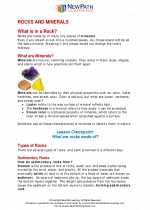 Rocks and minerals
Rocks and minerals  Activity Lesson
Activity Lesson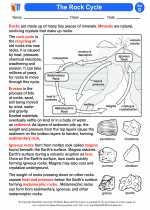 The Rock Cycle
The Rock Cycle  Worksheet/Answer key
Worksheet/Answer key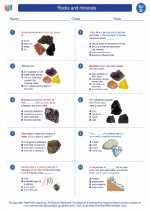 Rocks and minerals
Rocks and minerals  Worksheet/Answer key
Worksheet/Answer key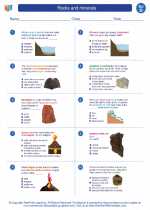 Rocks and minerals
Rocks and minerals  Worksheet/Answer key
Worksheet/Answer key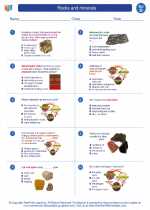 Rocks and minerals
Rocks and minerals  Worksheet/Answer key
Worksheet/Answer key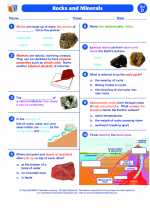 Rocks and Minerals
Rocks and Minerals  Vocabulary/Answer key
Vocabulary/Answer key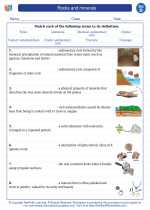 Rocks and minerals
Rocks and minerals  Vocabulary/Answer key
Vocabulary/Answer key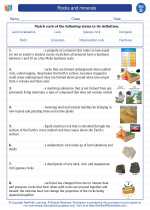 Rocks and minerals
Rocks and minerals  Vocabulary/Answer key
Vocabulary/Answer key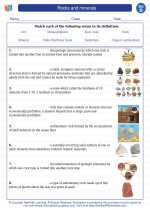 Rocks and minerals
Rocks and minerals  Vocabulary/Answer key
Vocabulary/Answer key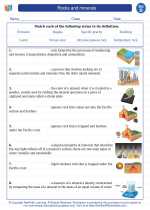 Rocks and minerals
Rocks and minerals 

 Activity Lesson
Activity Lesson
 Worksheet/Answer key
Worksheet/Answer key
 Worksheet/Answer key
Worksheet/Answer key
 Worksheet/Answer key
Worksheet/Answer key
 Worksheet/Answer key
Worksheet/Answer key
 Vocabulary/Answer key
Vocabulary/Answer key
 Vocabulary/Answer key
Vocabulary/Answer key
 Vocabulary/Answer key
Vocabulary/Answer key
 Vocabulary/Answer key
Vocabulary/Answer key

The resources above cover the following skills:
Concepts of Earth Science (SD1, SD2, SD3, SD4)
The student demonstrates an understanding of geochemical cycles by describing that most smaller rocks come from the breaking and weathering of larger rocks as part of the rock cycle.
The student demonstrates an understanding of geochemical cycles by recognizing the physical properties of water as they relate to the rock cycle.